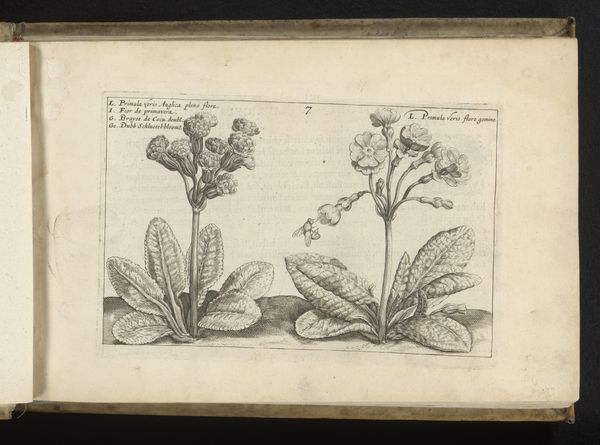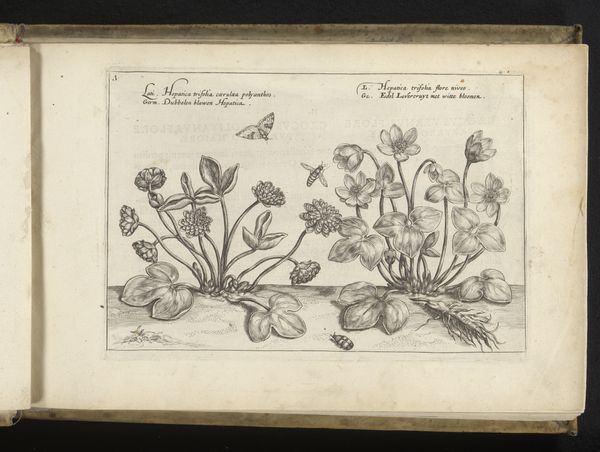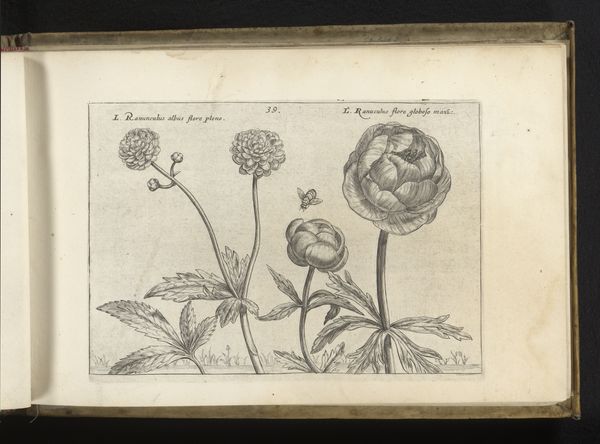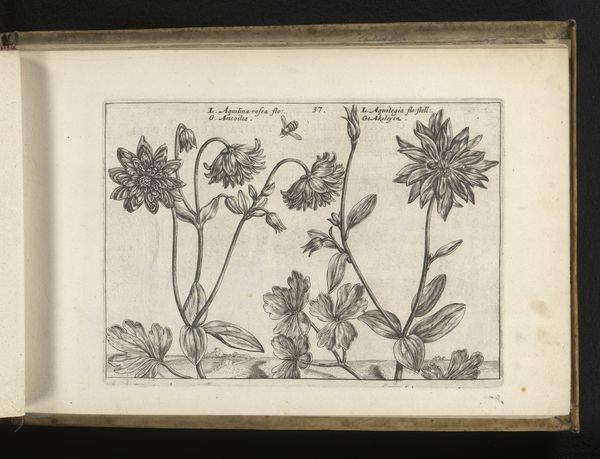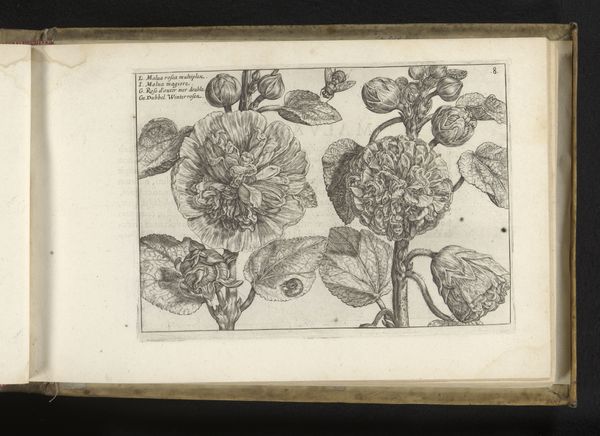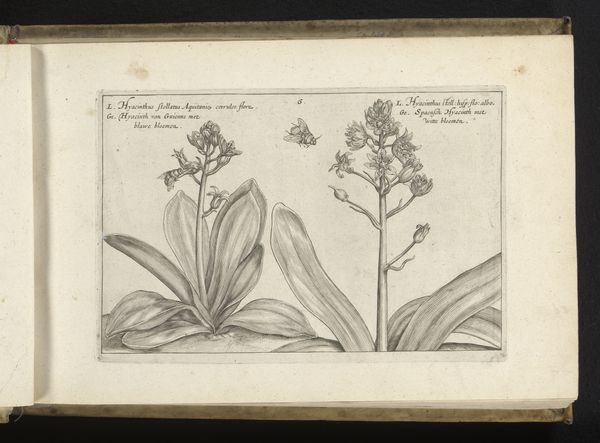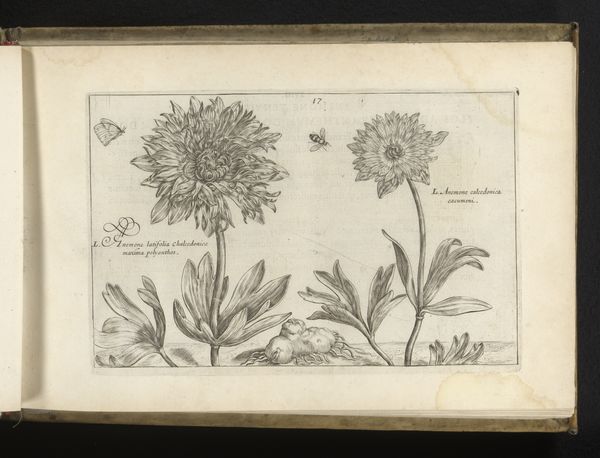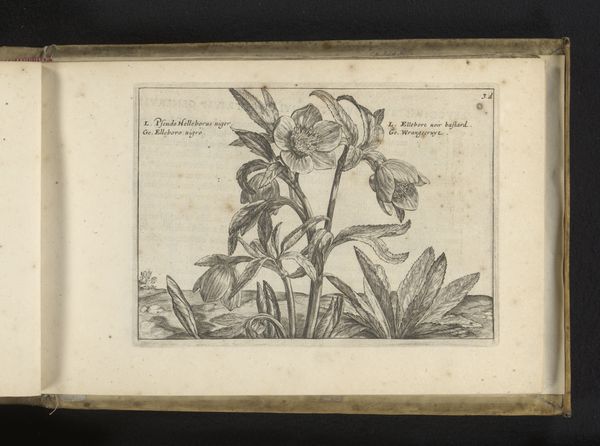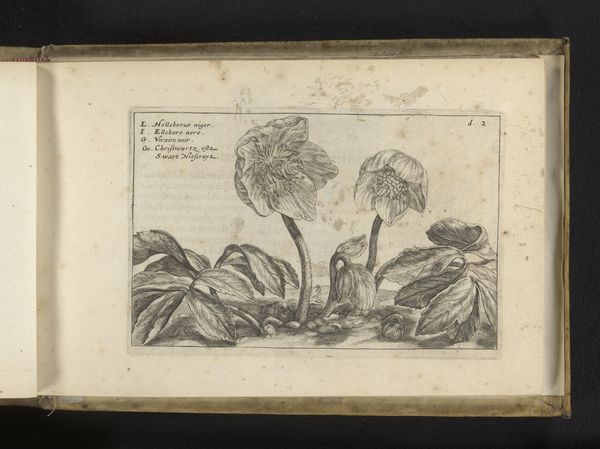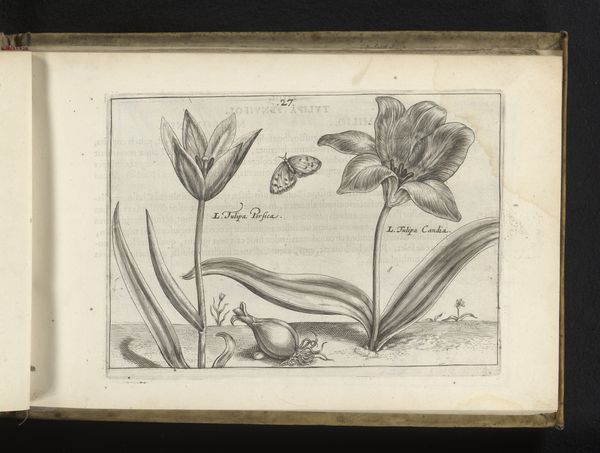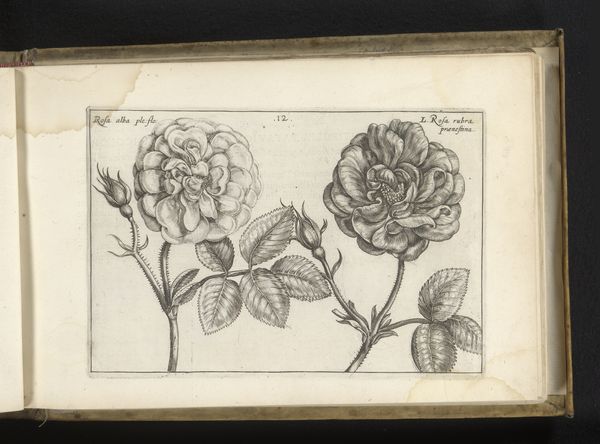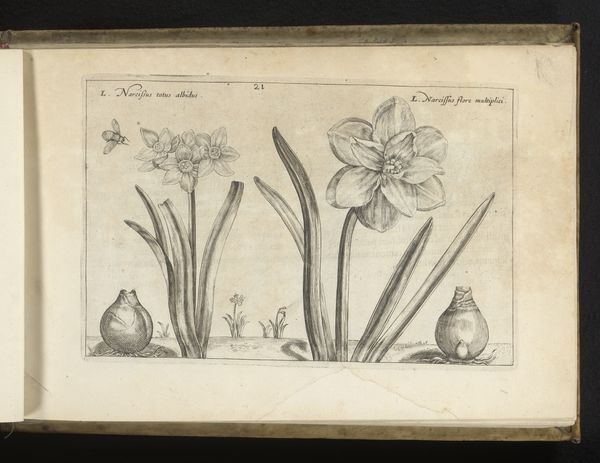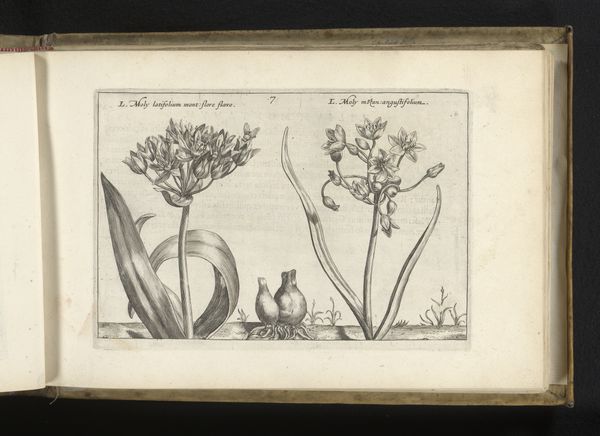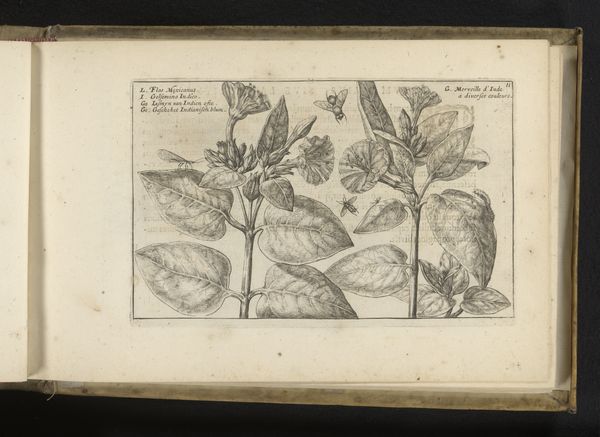
drawing, print, paper, ink, engraving
#
drawing
#
aged paper
#
toned paper
#
ink paper printed
# print
#
sketch book
#
flower
#
figuration
#
paper
#
personal sketchbook
#
ink
#
pen-ink sketch
#
pen and pencil
#
line
#
pen work
#
sketchbook drawing
#
northern-renaissance
#
sketchbook art
#
engraving
#
realism
Dimensions: height 140 mm, width 208 mm
Copyright: Rijks Museum: Open Domain
Crispijn van de Passe II created this print titled 'Twee soorten sleutelbloemen' or 'Two types of Primroses' in the 17th century. During this time, the Dutch Republic experienced a surge of interest in natural history, reflecting broader shifts in scientific thinking and the growing availability of knowledge through printed books. These delicate renderings of flora weren’t just scientific; they were deeply entwined with social and cultural meanings. Flowers, especially in the hands of Dutch artists, often served as symbols—of beauty, of course, but also of transience and the fleeting nature of life. Notice the bee flitting around one of the primroses. Bees were symbolically associated with diligence and industry, all virtues that were highly prized in Dutch society. Given the intricate details of the print, and its existence as one of many, how might this have been circulated? Who would have been able to own it? And how does this relate to our own access to images in the modern day?
Comments
No comments
Be the first to comment and join the conversation on the ultimate creative platform.
